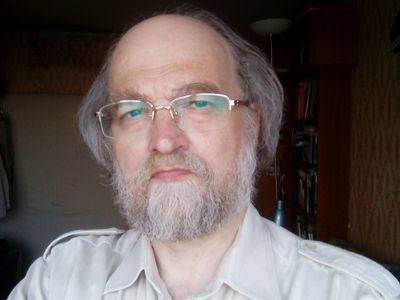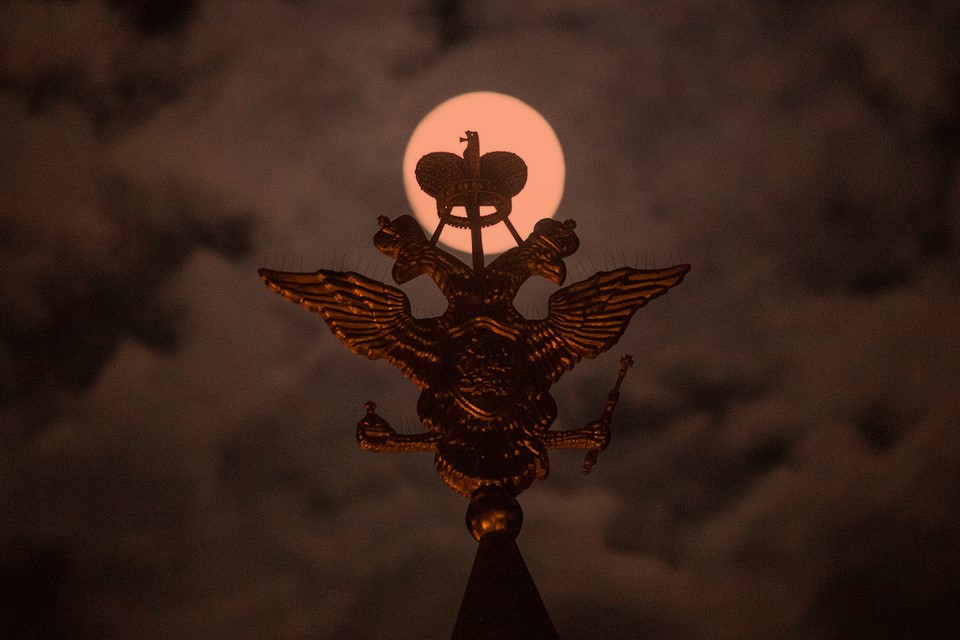The regime Vladimir Putin has created in Russia is an “existential” enemy of the West and an international system intended to limit the use of violence by one state against others, Aleksandr Skobov says. His aggression against Ukraine is thus far more than an attack on that country: it is an attack on the West as such.

(Image: kasparov.ru)
Many Western leaders do not want to acknowledge this, the Russian commentator says
, because it would require them to act; but their failure to understand what Putin is about and why will not solve the problem but only guarantee that it will fester and become an ever greater threat to Western civilization.
According to Skobov, “the most important aspect of humanity’s progress is the constant reduction in the level of force and cruelty in social relations,” progress that Western civilization has played the key role in promoting. But “despite the progress that has been achieved, today, the world is confronted by a most serious crisis.”
There are “objective reasons” for this crisis, Skobov says. The world is changing as a result of globalization and the shift to post-industrial societies, changes that have caused real problems for many countries. The leaders of the West bear some responsibility for this crisis, he continues. But the largest responsibility lies elsewhere.
It lies with “reactionary forces who consider limitations achieved by Western civilization on the right to use force excessive” and who seek to throw off any restrictions on their own actions. They back the idea of “everyone for himself,” and they oppose this to the principle of “’human rights for all’” both within their own countries and internationally.
“The Putin regime in Russia has become the shock detachment of the forces of worldwide reaction,” Skobov argues. It has transformed into the reason for its existence the struggle with the leadership of the West in the world and with the spread of Western principles and values.”
And this, Skobov insists, “is hardly an accident or a historical misunderstanding.”
“The very existence of a more developed, successful, and attractive social system, in which the dominating elites after a long struggle have come to terms with their responsibility to society and with legal limitations on force is something the ruling kleptocracy of the Putin mafia views as a threat,” Skobov says.
At its base, he continues, the roots of the Putin regime’s hatred to Western civilization and its political values” take as their point of departure the radical conservatism of the 19th century with its attacks on liberal values,” which rejected the French revolution of 1789 and ultimately led to what Hitler called national socialism.
Because that is the case, Skobov continues, the Putin kleptocracy is “the ‘existential’ enemy of Western civilization and its way of life. The Putin mafia not only seeks with all its strengths to stop the spread of the Western political model … it strikes to destroy Western civilization from within by corrupting elites and supporting reactionary extreme right forces.”
Consequently, “the imperial revanchism of the Putin kleptocracy must not be considered as an exclusively pragmatic instrument for the achievement of domestic political goals.” It reflects a desire for greatness based on the destruction of the West and the West’s values, Skobov says.
Because it possesses nuclear weapons and says it is prepared to use them, the Putin mafia has become “the main threat today to peace, progress and civilization.“ It has committed war crimes and crimes against humanity for the entire period of its existence, starting with the “colonial Chechen wars” and now involving the attack on Ukraine.
“Putin is not simply a thief and a kleptocrat,” Skobov continues. “He is a mass murderer and a fanatic. Death and war accompany all his rule. Putin is death and war. Putin is the aggressor. No one threatens Russia with conquest and enslavement. Putin conducts his wars for the enslavement of others.”
That is where the fate of the current international legal order will be decided.
That order will survive “only if the world has sufficient political will and decisiveness to force the Russian Federation to get out of Crimea and the Donbas. Therefore, any actions directed at forcing Russia to leave these places must be welcomed.”
Unfortunately for the West, “stopping Putin’s aggression only by sanctions targeted at his entourage is impossible. “As long as the countries of the West refuse to use arms against the aggression, Putin will successfully destroy the international legal order through his use of ‘hybrid wars.’”
“Sometimes one must fight for peace,” Skobov says, or as Andrey Illarionov
put it in a recent interview, “tanks will only be stopped by other tanks – or by tank-stopping means.”
And Skobov concludes: “While the war is going on, any expression of support and sympathy for the Putin army is a betrayal of the victims of aggression” and an act of assistance to “the occupiers and those who would inflict punishment on our common worldwide home.”
Thus, “don’t believe Putin: he isn’t racing to get into paradise: he supposes that in this earth, he awaits not paradise but the Beslan school with burning walls falling on those within.”
Further Reading:
- ‘Putin’s Ribbentrop’ emphasizes Moscow still wants all of Ukraine, Portnikov says
- Kremlin’s targeting of messages makes ‘ideology of hybrid war’ more effective and dangerous than Soviet predecessor, Eidman says
- Why Europe’s security depends on a strong response to Russia, immediately
- 24 years ago, Moscow attacked Chechnya, triggering a war that changed everything
- Sanctions against Russia don’t damage the EU. But Italy, Hungary, and Austria might try to get them scrapped
- Putinism – a greater threat to humanity than anything the West has faced before, Yakovenko says
- Putin’s invasion force is only 18 km from Ukrainian border and West is ignoring it, Eidman says
- Beware of Russia’s bilateral cyber world order
- Putin has crossed a Rubicon – Will the West respond?
- Putin’s ‘secret weapon’ against the West – massive illegal cash hordes in foreign countries
- Kremlin’s censorship of Shenderovich interview spotlights Putin’s mafia connections

